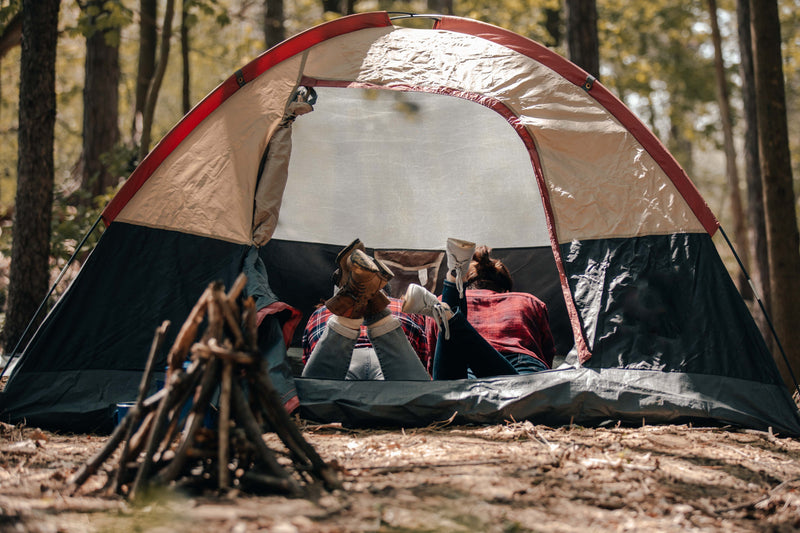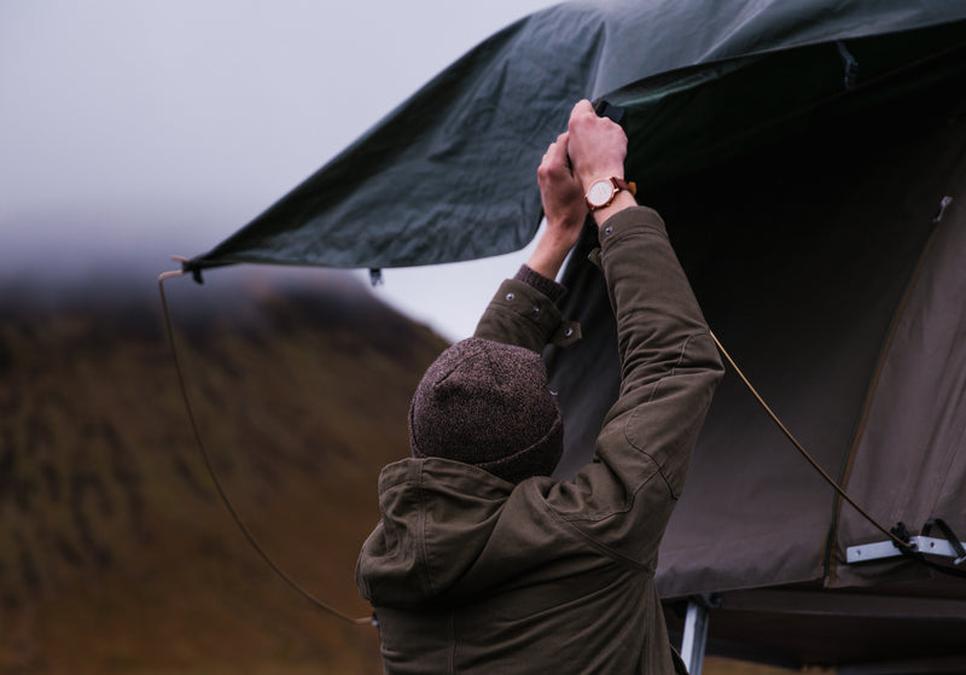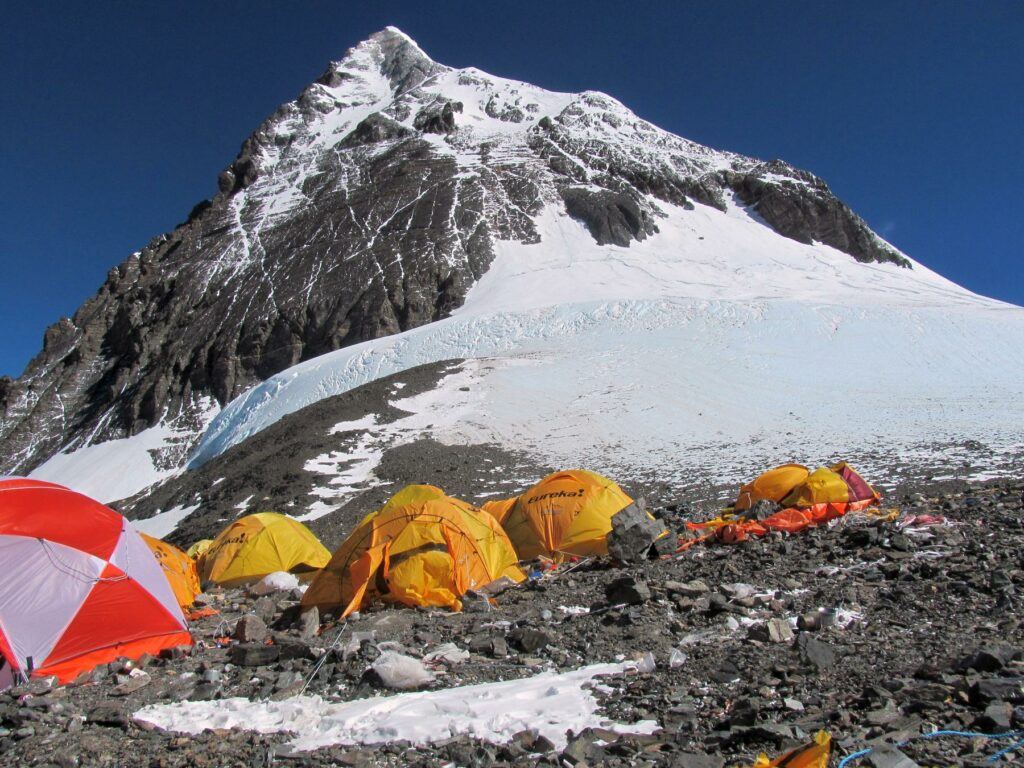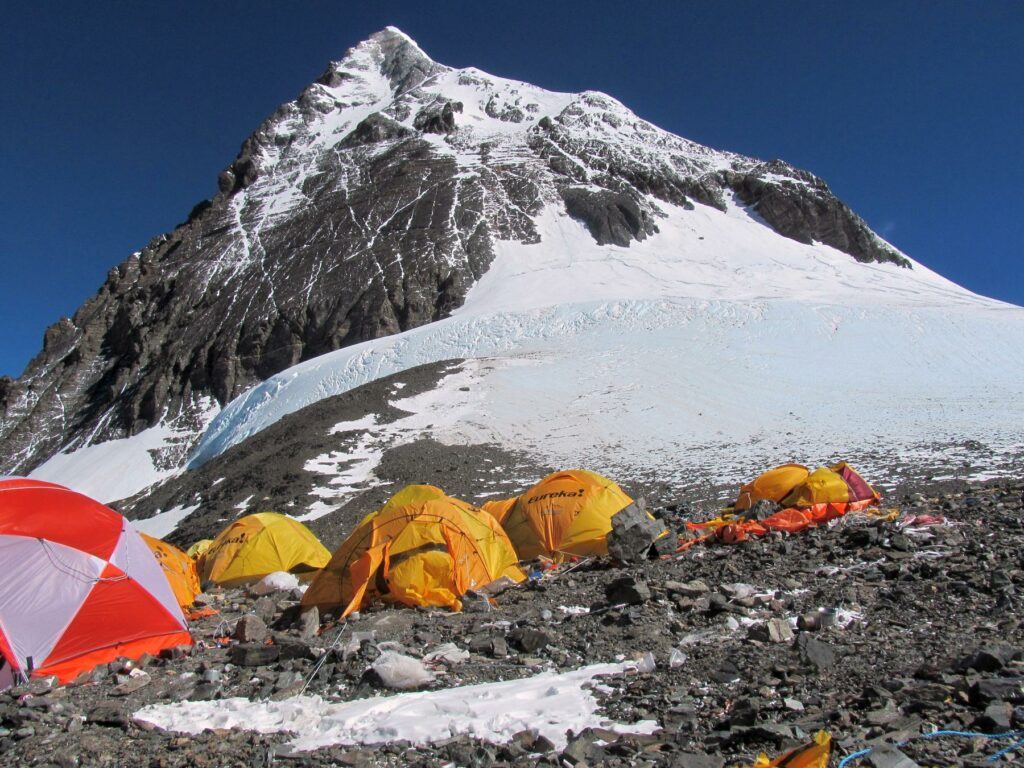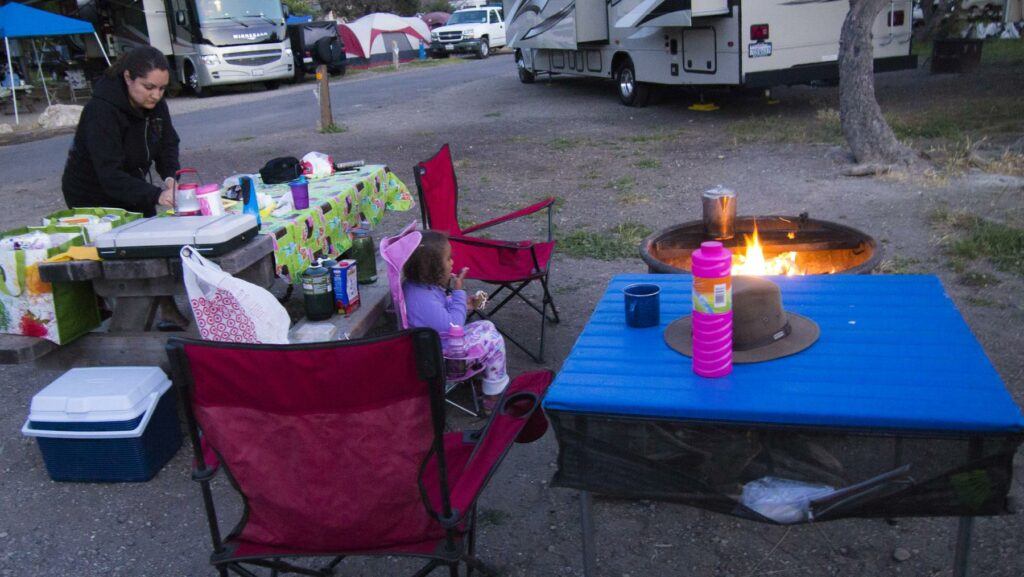When you venture into the great outdoors to set up camp, it can be a rejuvenating experience that allows you to escape the hustle and bustle of everyday life. However, with this freedom comes responsibility. As a camper, it’s essential to be mindful of your surroundings and the people sharing the campground with you. In this blog post, we’ll explore some essential best practices for mastering campground etiquette that will not only make your stay more enjoyable but also ensure that everyone around you can enjoy their time in nature as well. So let’s dive in and discover how to become a responsible and courteous camper!
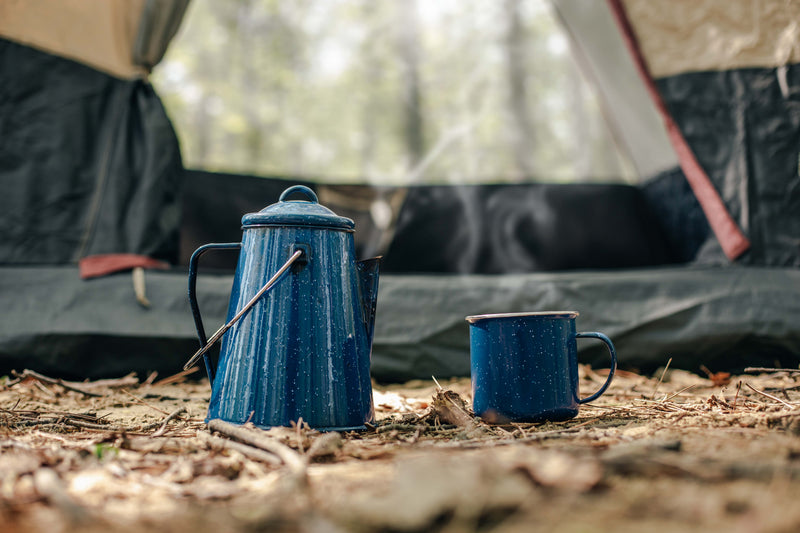
Why Campground Etiquette Matters: An Introduction
When it comes to camping, campground etiquette is essential for ensuring an enjoyable experience for everyone. Following basic rules and practices not only shows respect to fellow campers but also helps preserve the natural environment we are all there to enjoy. Proper campground etiquette includes being mindful of noise levels and light pollution, properly disposing of waste and avoiding littering at all costs. Additionally, responsible campfire practices can prevent wildfires from starting while sharing common spaces such as bathrooms, showers or picnic areas requires consideration for others’ needs. Pet owners should always clean up after their animals while hikers need to be aware of trail etiquette so they do not disrupt wildlife or other hikers on busy trails. Overall, mastering campground etiquette will make your camping trip much more pleasant and ensure that you leave nature in a better condition than you found it.
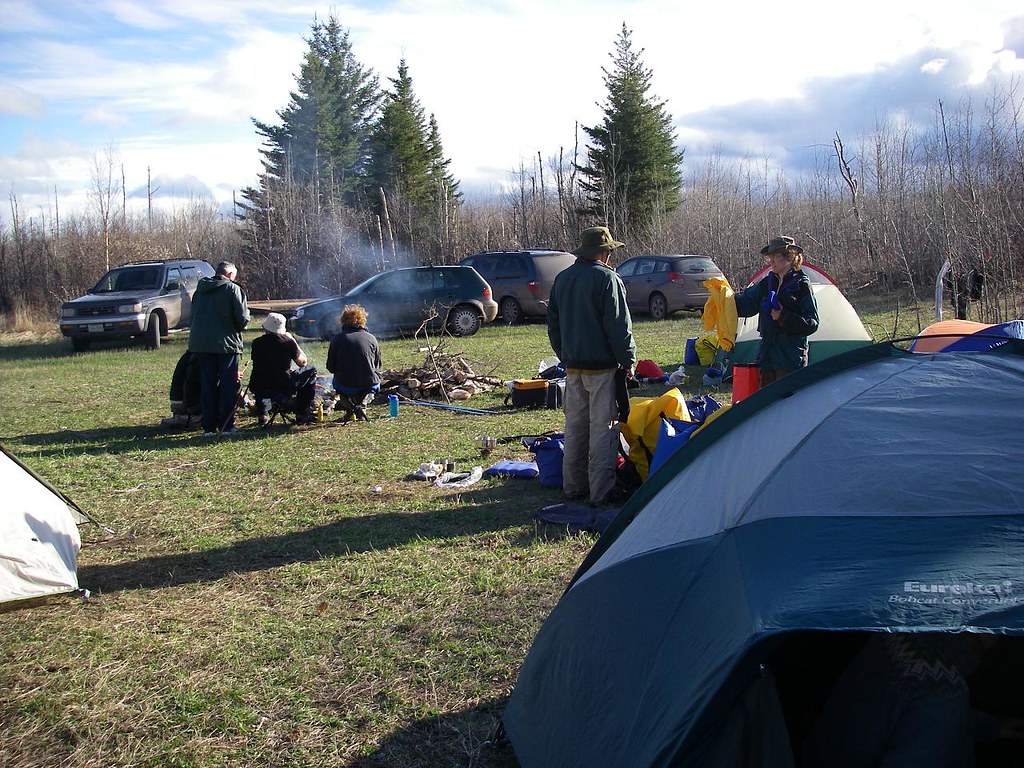
The Dos and Don’ts of Campground Etiquette
Campground etiquette is not just about being polite, it’s also necessary for the safety and enjoyment of all campers. Firstly, make sure to follow campground rules, such as quiet hours and designated fire pits. It is important to respect other campers by keeping voices down during these times. Secondly, always clean up after yourself and leave the campsite in better condition than when you arrived. This includes properly disposing of waste and packing out trash. Keep your food securely stored away from wildlife as well. Lastly, be mindful of your camping gear setup so that it does not encroach on neighboring campsites’ space or privacy. Remembering to follow these basic principles will help ensure everyone has a safe and enjoyable trip while enjoying the great outdoors!
Respecting Your Neighbors: Noise and Light Control
When camping, it’s important to be mindful of your neighbors and keep noise and light levels under control. Quiet hours are typically enforced in campgrounds, so make sure to adhere to them. Avoid loud music or conversations late at night or early in the morning. If you need to use a flashlight or lantern, point it downwards towards the ground instead of shining it directly into other campsites. Additionally, be considerate when arriving or leaving the campground during quiet hours. Keep car doors and trunks closed quietly and avoid revving your engine.
If you have children with you, make sure they understand the importance of being quiet and respectful of others’ space. Encourage them to play quietly during quiet hours and remind them not to run through other campsites.
By following these simple guidelines, you can ensure that everyone in the campground has a peaceful and enjoyable experience.
Keeping the Campground Clean: Waste Disposal and Littering
One of the most important aspects of campground etiquette is keeping the area clean and free of litter. Always bring trash bags and dispose of them properly in designated receptacles. Never leave trash or food scraps outside your tent or RV, as this can attract unwanted wildlife. Additionally, be mindful of waste disposal for things like grey water and human waste. Use designated dump stations for RVs and follow proper procedures for disposing of waste in portable toilets.
In addition to disposing of waste properly, it’s important to avoid littering in any form. This includes cigarette butts, bottle caps, and other small items that can easily be dropped or lost. Remember to always leave your campsite cleaner than you found it. By following these simple guidelines, you can help keep the campground clean and enjoyable for everyone.
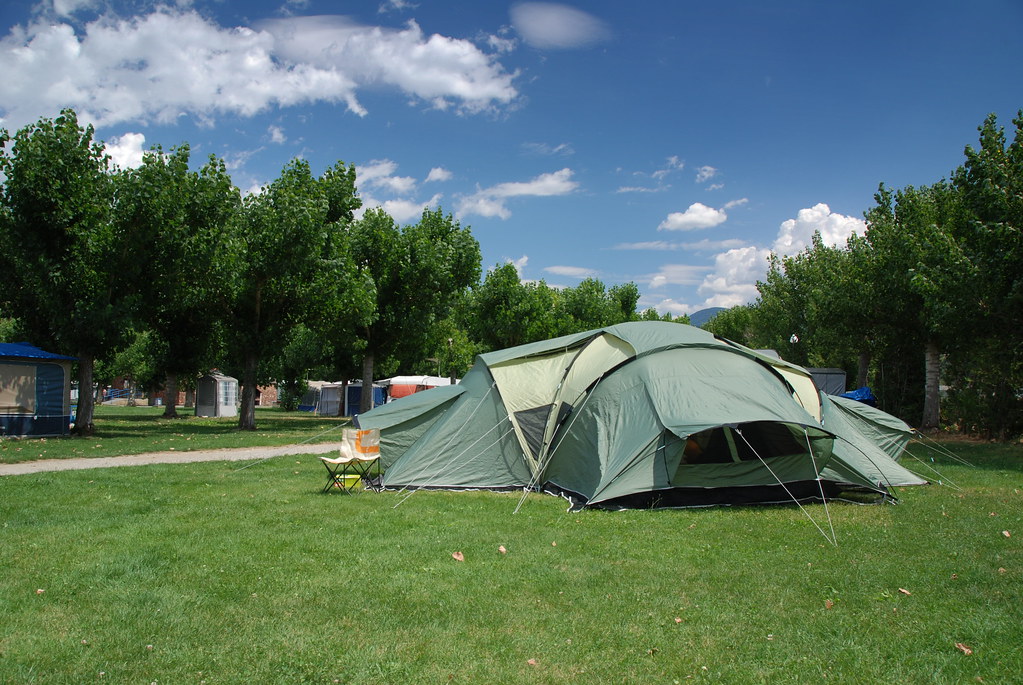
Fire Safety and Responsible Campfire Practices
Fire Safety is of the utmost importance when camping. Before starting a fire, make sure it is allowed in the campground and that you have obtained any necessary permits. Always practice responsible campfire practices, such as building fires in designated areas and keeping them small enough to be easily controlled. Never leave a fire unattended or go to bed without completely extinguishing it. Keep water and a shovel nearby to put out any embers or sparks quickly.
Additionally, be mindful of the weather conditions before lighting a fire. High winds can cause fires to spread rapidly and pose a danger not only to your group but also to neighboring campsites.
Remember, fires are an integral part of many camping experiences, but they must be treated with respect and caution at all times for everyone’s safety.
Sharing Common Spaces: Bathrooms, Showers, and Picnic Areas
When using shared spaces like bathrooms, showers, and picnic areas, it’s important to be considerate of others. Clean up after yourself and leave the space as you found it. Don’t leave personal items in shared spaces or take up more than your fair share of space. Be mindful of others waiting to use the facilities and keep your time in the bathroom or shower to a reasonable length. Respect quiet hours when using picnic areas or other common spaces, especially if they are close to campsites. Avoid playing loud music or engaging in noisy activities during these times. By following these simple rules, you can help ensure that everyone has a pleasant and enjoyable camping experience.

Pet Etiquette: Rules for Bringing Your Furry Friends Camping
Bringing your pet along can enhance your camping experience, but it’s important to follow campground rules and be considerate of other campers. Keep your dog on a leash at all times and don’t let them roam freely. Pick up after them immediately, especially in the designated pet areas or when taking them for walks.
When setting up camp, make sure you choose a spot away from other campsites to minimize barking and ensure privacy for neighboring campers. Never leave pets unattended in your camper or tent as they may become anxious or disturb others with their barking.
If you plan on bringing your furry friend hiking, research trail regulations beforehand as certain trails may not allow dogs due to wildlife concerns. Always keep dogs off trails if prohibited and pick up their waste if allowed on the trail.
By following these guidelines, both you and your four-legged friend can enjoy an unforgettable camping trip while being mindful of others around you.

Trail Etiquette: How to Be a Considerate Hiker
Stay on the Trail and Leave No Trace Behind
When hiking on trails in a campground, it’s important to stay on designated paths to avoid damaging the surrounding vegetation. This not only helps preserve the natural beauty of the area but also ensures that future hikers can enjoy the same experience. Additionally, it’s crucial to follow the “leave no trace” principle by packing out all trash and disposing of waste properly. This includes not only food wrappers and water bottles but also biodegradable items like fruit peels and toilet paper. By respecting the trail and leaving no trace behind, you can help maintain a healthy ecosystem for wildlife and fellow campers alike.
Yielding to Other Hikers and Trail Users
When hiking on a trail, it’s important to be aware of other hikers and trail users. Yielding to others is a key part of trail etiquette. If you’re hiking uphill, step aside and let those coming downhill pass first. If you’re hiking downhill, be prepared to step aside for those going uphill. When encountering horses or mountain bikers, give them plenty of space and make sure they are aware of your presence. Always be courteous and communicate with other trail users to ensure everyone has a safe and enjoyable experience. By following these simple guidelines, you can help maintain a positive hiking environment for all.
Properly Disposing of Waste on the Trail
Leave No Trace is a principle that every hiker should follow. The trail is not your personal trash can, so please don’t litter. Carry all your waste with you and properly dispose of it at designated areas like restrooms or trash cans. If there are no such facilities available, pack out everything including food scraps, toilet paper, and any other garbage in airtight containers or baggies.
Human waste should be buried at least 200 feet away from any water source or trail using trowels to dig 6-8 inches deep holes. Make sure to cover and disguise the hole afterward. Remember, following these trail etiquette practices helps preserve nature for future generations to enjoy!
Keeping Noise Levels Down in Natural Areas
Be mindful of the noise you make while hiking in natural areas to maintain a serene environment for wildlife and fellow hikers. Avoid loud conversations or playing music on portable speakers, which can disrupt the peaceful surroundings and scare away animals. Also, stay on designated trails to minimize damaging fragile ecosystems and reduce disturbance to wildlife habitats. Remember that you are a visitor in their home and have an obligation to behave responsibly. Keeping noise levels down is not only courteous to other campers but also essential for preserving the beauty of nature around us.
Respect for Wildlife: Tips for Coexisting with Nature
Wildlife encounters can be one of the most exciting parts of camping, but it’s important to remember that we are visitors in their home. Always keep a safe distance from animals and never feed them. Store food and trash securely to avoid attracting wildlife to your campsite. If you do encounter a bear or other large animal, make yourself look bigger by raising your arms and making noise to scare them away.
Leave no trace is also important when it comes to wildlife. Don’t disturb their natural habitat by moving rocks or plants, and avoid leaving any kind of human-made objects behind. Respect protected areas and follow all rules and regulations regarding wildlife conservation.
Remember that we are all responsible for preserving our natural environment for future generations to enjoy. By practicing good campground etiquette and respecting wildlife, we can ensure that our camping experiences are not only enjoyable but also sustainable.

Conclusion: Mastering Campground Etiquette for a Better Camping Experience
Mastering campground etiquette is crucial to having an enjoyable and stress-free camping experience. By following these essential best practices, you can ensure that you are respecting your fellow campers, the environment, and yourself. Remember to always be considerate of noise levels, especially during quiet hours. Additionally, make sure to properly dispose of waste and avoid littering in order to keep the campground clean for everyone’s enjoyment.
Responsible fire practices are also important when camping; be mindful of any fire restrictions or regulations in the area and avoid leaving fires unattended or burning anything other than wood. When using common spaces such as bathrooms or picnic areas, leave them as tidy as possible for others to use.
Don’t forget about pet etiquette! Keep dogs on leashes and clean up after them so they don’t disturb wildlife or become a nuisance to other campers. And while enjoying nature through hiking, remember basic trail etiquette such as yielding to uphill hikers.
By mastering these essential best practices for campground etiquette, you can have a positive impact on both your own camping experience and those around you.
Answers
Who should I notify if I arrive late at a campground?
Notify the campground office or host if arriving after their office hours.
What is the proper way to dispose of trash at a campground?
Use designated trash containers and recycling bins to dispose of trash.
How can I be respectful of other campers at a campground?
Keep noise levels down, respect quiet hours, and follow campground rules.
Who should I contact if I encounter a problem at a campground?
Contact the campground staff or host to address any issues or concerns.
What is the proper way to use a campfire at a campground?
Follow campground rules for fire safety and use designated fire rings only.
How can I be mindful of wildlife when camping at a campground?
Store food properly, avoid feeding wildlife, and respect their natural habitat.


